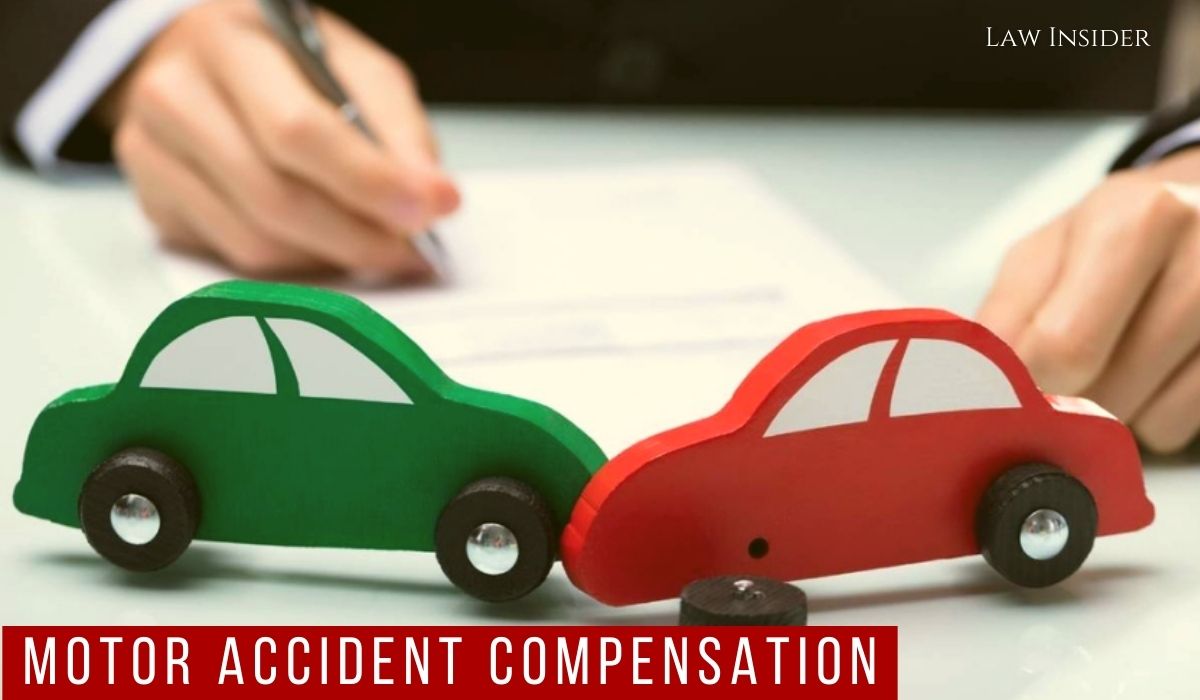Sakina Tashrifwala
Published on: October 4, 2022 at 19:40 IST
The Supreme Court ruled that vehicle accident compensation should not be lowered only because the deceased’s business interests and possessions were left to the claimants.
In this case, the deceased was a businessman who earned money from his agricultural fields and leased out real estate. At the time of his death, he was survived by a widow, two minor children, and parents who were said to be financially reliant on him.
The High Court decreased the compensation since the income tax filings and audit reports show that the Deceased’s income was mostly comprised of returns from his capital holdings, which were legally left to the Deceased’s dependents.
The High Court overturned the Tribunal’s decision on the grounds that the income produced was derived from capital assets and could not be attributed to the deceased’s personal talents.
It then proceeded to calculate the Deceased’s income on a hypothetical premise based on his educational qualifications.
A bench comprised of Justices Surya Kant and V. Ramasubramanian ruled against the High Court’s approach:
“Unfortunately, such an approach, in our opinion, is erroneous in view of the decisions of this court in Amrit Bhanu Shali vs. National Insurance Co. Ltd. and Kalpanaraj vs. Tamil Nadu State Transport Corpn. wherein this court has held that documents such as income tax returns and audit reports are reliable evidence to determine the income of the deceased.”
“Hence, we are obliged to modify the compensation, especially when neither any additional evidence has been produced to showcase that the income of the Deceased was contrary to the amount mentioned in the audit reports nor it is the stand taken by the Insurance Company that the said reports inflated the income.”
The Court reaffirmed that compensation paid under Section 168 of the Motor Vehicles Act must be “reasonable and fair,” and that it is a benefit and welfare legislation that attempts to offer compensation based on an individual’s current status, which is fundamentally forward-looking.
Profits from Business Endeavours
The Court observed that the income was related to sums received through the deceased’s many business operations, which comprised partnership businesses and other investments such as shares and bank interests, according to the audit report and other records.
These ventures were the outcome of the Deceased’s idea, and he was actively involved in their day-to-day operation.
“The mere fact that the Deceased’s share of ownership in these businesses ventures was transferred to the Deceased’s minor children just before his death or to the dependents after his death is not a sufficient justification to conclude that the benefits of these businesses continue to accrue to his dependents.”
“On the contrary, it has come on record that the Deceased was actively involved in the day-to-day administration of these businesses from their stage of infancy, had undergone specialized training to administer his business and that the audit reports neatly delineate Deceased’s share of income from the businesses.”
“These facts necessitate that the entire amount from the business ventures is treated as income. Similarly, the amount earned from the bank interests and remaining investments must also be included as income”, the Court observed.
The Appellants presented audit reports for the previous four fiscal years, highlighting the sums under ‘Income from Business Ventures and Other Investments,’ which are as follows –
(i) Rs. 8,95,812/ for FY 20002001;
(ii) Rs. 10,31,091/ for FY 20012002;
(iii) Rs. 14,65,060/ for FY 20022003; and
(iv) Rs. 9,79,099/ for FY 20032004.
The average of these sums is Rs. 10,92,765.50/, which is rounded to Rs. 10,93,000/ and was awarded to the Appellants as loss of income earned under ‘Income from Business Ventures and Other Investments.’
Income from Household Property and Agricultural Land
According to audit records, the deceased received all of his rental income from the share he had in a commercial building known as the “Lakshmi Complex,” with the remainder coming from his agricultural properties, which he left to his legal heirs upon his death.
Because the assets had been given to the dependents, the Court evaluated whether this income should be excluded from compensation.
In this connection, reference was made to the judgement in State of Haryana vs. Jasbir Kaur, in which it was stated that in the context of agricultural land, the revenue from it does not need to be subtracted entirely from compensation, as the claimants may have to employ people to look after agriculture.
As a result, the surrounding conditions must be investigated.
The Court remarked, taking a hint from this precedent.
“In our opinion, the abovementioned observations, though made in the context of agricultural land, would also be applicable to rent received from leased out properties as the loss of dependency arises mainly out of loss of management capacity or efficiency.”
“As a rule of prudence, computation of any individual’s managerial skills should lie between 10 to 15 per cent of the total rental income but the acceptable range can be increased in light of specific circumstances. The appropriate approach, therefore, is to determine the value of managerial skills along with any other factual considerations”.
Two factors were considered:
First, the rental amount sought to be deducted reflects the nature of the investment; and
Second, because the managerial skills required for supervising the said building would necessitate sophisticated contract management skills and goodwill among the business community, it is necessary that we determine the value of the Deceased’s managerial skills on the higher side.
The Court determined that Rs. 2,50,000/ was a reasonable compensation given the Deceased’s managerial talents.
It was noted that the aforementioned sum would also include the fee for administrative skills in relation to the Deceased’s agricultural holdings.

